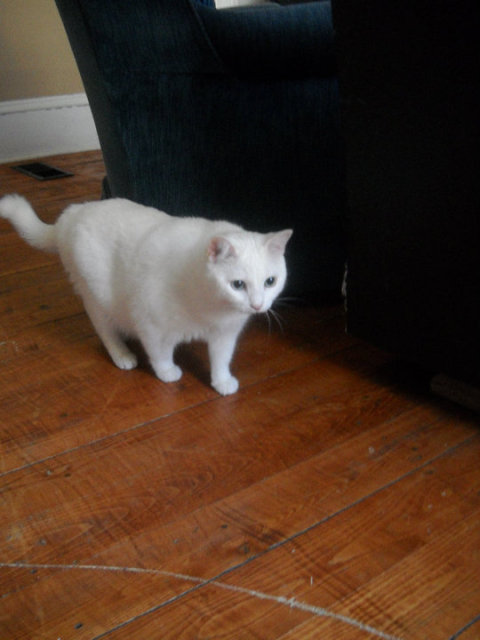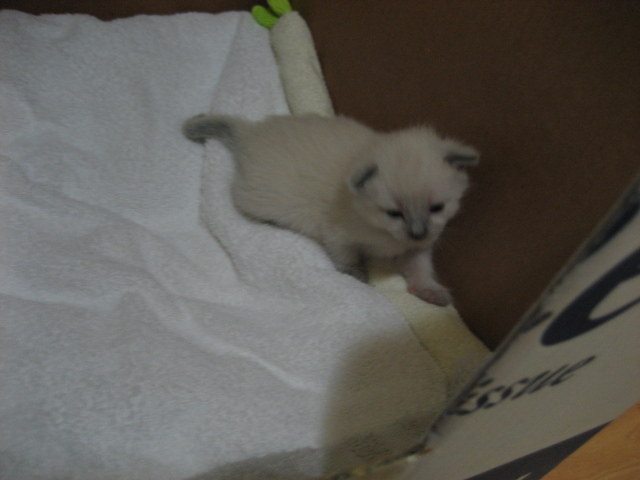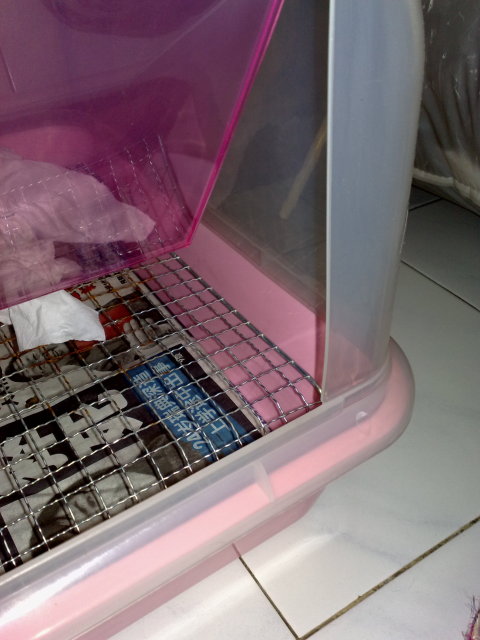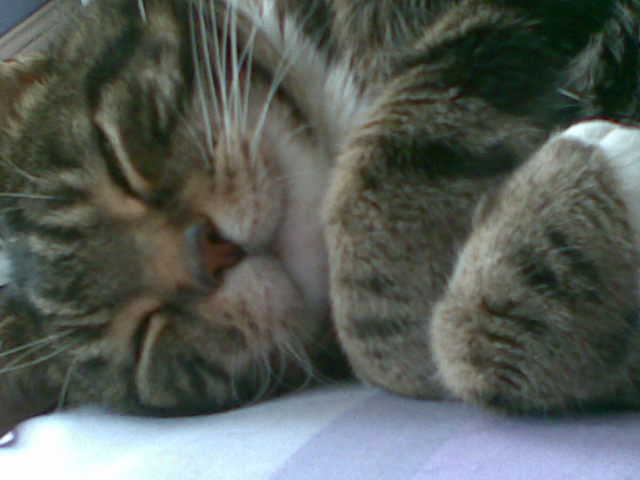QuestionDear Jessica, thank you so much for your reply, yes, Molly has been spayed, so from what you say it I will suggest to my Dad that we ought to get her checked out. If she has got problems with her urinary tract, is it usually something that is treatable? My Dad is quite elderly and is likely to get very anxious about it, I suppose I am asking whether she might have something life threatening?
Followup To
Question -
My Dad's cat Molly has started to urinate in my Dad's house, I don't think it happens that often, but she seems to be making a point of walking into the house from outside, spray somewhere, usually near the door that leads outside, and just walks out again. We have no idea why she has started doing this, we did wonder whether it might be her way of telling the neighbour's cat to keep out? What can we do to nip this in the bud, and is there anything we can use to put down in the area that will put her off doing it? Your help would be appreciated.
Answer -
Hi Liz. My first question is, is she spayed? When a female cat sprays, it's almost always because she's leaving her scent for males. If she's not spayed, make an appointment to have this done today. That will almost guarantee to stop this behavior.
If she is spayed, it's likely that she's having urinary tract problems or may have some other physical thing going on. Urinary tract infections, stones, and crystals are extremely common in cats. So Molly should be seen by a vet and have a urinalysis done.
It may be possible that she's spraying to mark her territory, although cats who are spayed don't tend to mark like this. If this is the problem, then a product called Feliway could help. Cats spray and scratch things to mark them as their own. Their urine and scent glands release pheromones, a hormone that has a unique scent. Feliway is a synthetic pheromone that you would spray on the effected area so that your kitty doesn't feel the need to put her own pheromones on there through urinating. You can buy it at pet stores or through their site, www.felineway.com.
If you're going to try the Feliway, clean the sprayed areas with rubbing alcohol, rinse with water, allow it to dry, and then spray it with Feliway several times a day.
If you're not going to give Feliway a shot, then the best way to clean accident areas is to use an enzymatic cleaner to break down the fats in the stain. I like Greased Lightning Orange Blast, available in the auto section at most stores.
If she urinating on the floor, would it be possible to put a litter box over it? Other things that sometimes help would be applying double-sided tape (see www.stickypaws.com for a good one) to the area, or placing a vinyl carpet runner, upside down on the area. Both of these will be uncomfortable on the cat's feet.
AnswerI'm glad some of the information was helpful!
Urinary tract problems are treatable. If it's an infection, antibiotics will clear that up. If it turns out to be urinary tract crystals or stones, an antibiotic and a special diet will usually get rid of them. There is a condition called interstitial cystitis, which is an inflammation of the bladder lining. No cause is usually found. It causes the bladder lining to become painful, bleed, and produce mucus clots in reaction to the inflammation. These cats will sometimes experience flare ups periodically throughout their lives. A cat who suffers from intersitial cystitis usually needs a course of antibiotics and an analgesic to reduce pain. A special diet is also recommended in these cases. There's a supplement, too, that helps keep the bladder lining healthy, called Cosequin for cats. This is available at pet stores or through your vet.
None of these are life-threatening in and of themselves. If a urinary tract infection is left too long, it can spread to the kidneys and cause kidney failure, which IS life-threatening. Stones can lead to deadly blockages, but this usually happens in males and is very rare in females because their urethras are much wider. And interstitial cystitis may also pose a blockage threat, caused by blood and mucus clots, again rare in females.
I hope this is all caused by a urinary tract infection. This will be easiest to treat and should get rid of her inappropriate urination as well.

 My cats gone missing
Question
Tommy
Hi Jessica,
I do hope that you c
My cats gone missing
Question
Tommy
Hi Jessica,
I do hope that you c
 Breed Identification
Question
Zoey
I was curious if you could identify the b
Breed Identification
Question
Zoey
I was curious if you could identify the b
 is my kitten blue or blue cream point?
Question
polar bear
hi Jessica, our mommy cat is a blac
is my kitten blue or blue cream point?
Question
polar bear
hi Jessica, our mommy cat is a blac
 My cat doesnt piss on his litter box
QuestionLitter box
QUESTION: My 7months stray ca
My cat doesnt piss on his litter box
QuestionLitter box
QUESTION: My 7months stray ca
 my cat!
QuestionQUESTION: I recently e-mailed a question to you
my cat!
QuestionQUESTION: I recently e-mailed a question to you